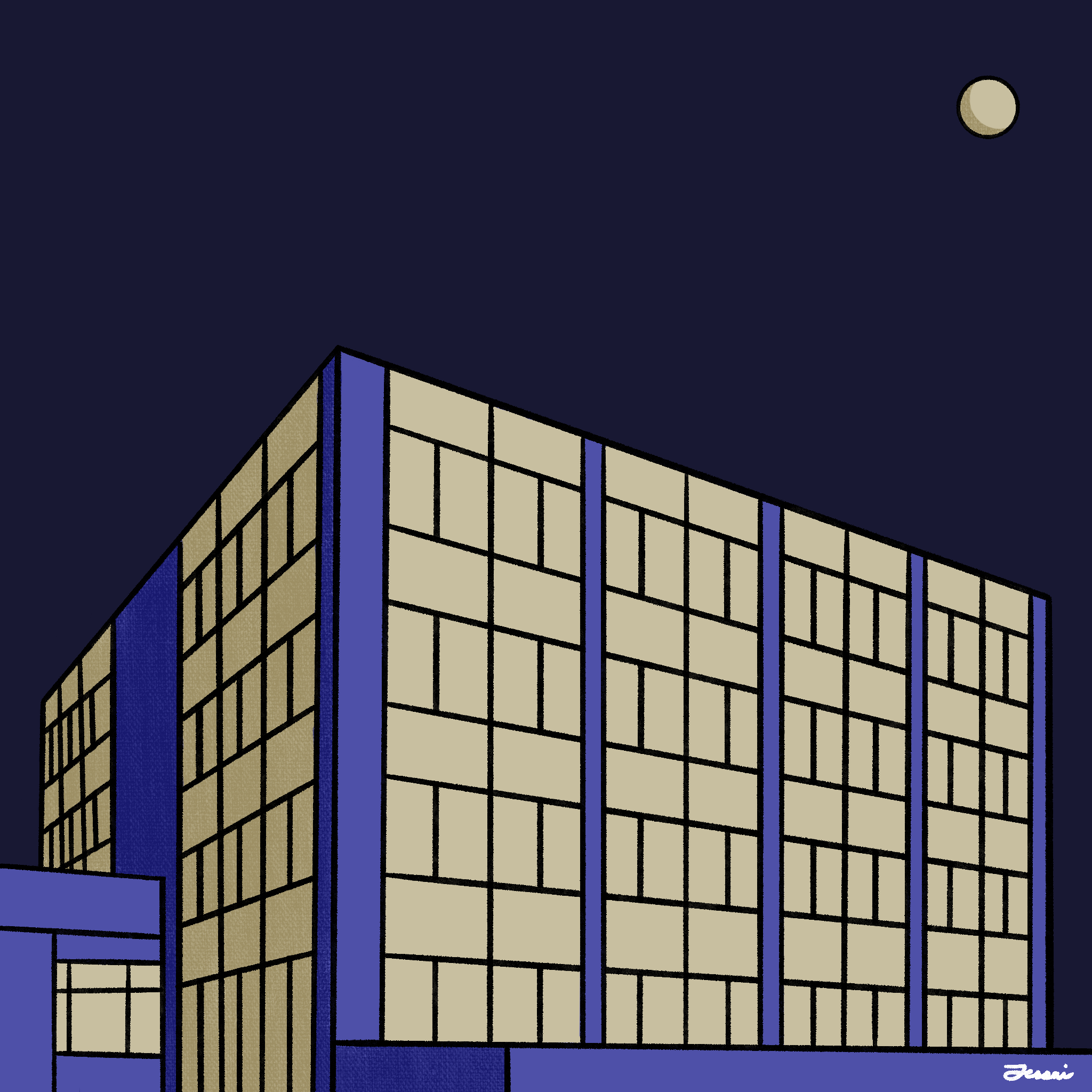
Jessai Flores
This past winter, as a senior in high school, I realized I had grown out of my space. I felt enclosed by my daily habits: the subway ride to school, the blocks I would walk, the hours I would spend in bed contemplating doing my busywork. The only thing I wanted to do was leave home and go to Yale. My dream had come true — I was going to a beautiful, intellectual utopia. Perhaps that made the anticipation worse.
Finally, I made it to Aug. 21. My family and I overloaded our Subaru and pulled up to Phelps Gate. My suitcases, a cluttered curation of myself, were quickly unloaded into my L-shaped bedroom. I hung up an Edward Hopper poster that reminds me of my mom and loaded my rented mini fridge with hummus snack packs: my lifeline for late night study sessions.
As I made my room mine, it became clear to me that no decor or familiar taste of packaged preservatives would connect me to what I now understood as my “other life.” Something about entering the abundance of Yale felt permanent and grand. However, I had no definition for the feeling of pressure Yale’s distinct presence provided, until I stumbled upon William Blake.
My humanities seminar took a trip to the Yale Center for British Art to look at William Blake’s “Jerusalem.” One panel, in particular, portrayed a curious man under a gothic archway. It resembled plenty of the passages I have taken on campus, whether it be in the HQ courtyard or under the Davenport portico.
As I stared at the brilliant pieces, the docent explained that Blake believed that to enter the gothic was to enter truth. I imagined how Blake would’ve relished in young minds’ drunkenly skipping through the gothic wonderlands of Branford and JE –– at 2 a.m. on their way to GHeav –– presenting the most honest versions of themselves. But it also struck me that Yale is the blueprint for finding truth in the gothic; I finally had evidence for the pressure of veritas that has trailed me in my period of adjustment.
There is no other campus that, in my opinion, feels more like an enclosure than Yale. In our residential colleges, we are hugged by gothic architecture that is only accessible via swipe — unless you’re in Morse or Stiles, in which case I apologize for the FOMO. We struggle with outdated, extremely heavy doors that lead to stories of buildings that boast significance, creating boundaries and emphasizing the grandeur of knowledge that is offered to us. The extraordinary architecture is meant to inspire us and connect us to a history of thinkers that came before us; it contains Yale’s most extreme attributes within tight boundaries. We are somehow expected to feel as if it is ours alone to enjoy.
As I experience many Yale firsts, this otherworldly, private place does feel inspiring. It impresses me most when I’m walking to the library late at night, while no one is on campus except for the people who are within the same enclosure. However, this explicit definition of place also means less fluidity for myself. I am here now. I am not going anywhere.
As I settle in, I am acutely aware of the boundary that is naturally created between those who are “in” our Yale community and those who aren’t. I do not know if I have gotten used to the abundance of Yale, and I don’t know if I ever will. Yale will stay a separate place in my mind forever — just as it is architecturally intended to be. But, I have also begun to curate my own space within the sprawling campus. Though I do not yet understand the extent of Yale’s treasures, I have allowed some experiences to help.
Only seven weeks in, my life at home feels more relevant than it will in a few months down the line. I am attempting to be conscious of Yale as an enclosure as I make space for myself here. Having the unique opportunity to make a home also comes with the decision to be flexible: hosting people in your suite, leaving campus to teach young kids. When I arrived late August, the gothic architecture presented a barrier to building anything new. However, as I grow into life at Yale, I continue to find places where truth transgresses the past.







